Remembering Why
Words: Josh McGarel / Mack Rankin
Photos: Josh McGarel
As part of our ongoing work with the Indigenous Youth Mountain Bike Program, last fall 7mesh supported Josh McGarel and crew’s trip to document the great work being done by the Canim Lake First Nation and First Journey Trails. Learn more below and watch for Josh’s upcoming feature in Mountain Life magazine.
Shouts and laughter careen through the trees chased by the rattle of bikes, drivetrains slapping chainstays and the odd squeal of wet brakes. “I think you can double that”, “No, I can definitely triple it”, goes one exchange, shortly before a large bang and a particularly loud period of jeers and laughs.
We all have our favorite trail, our favorite feature that makes us feel heroic, we all have our go-to when we just need to get away from it all. Trails form an indispensable bedrock to our community as mountain bikers. Riding them gives us a unique insight into the builders that crafted them. We see the forest through their lens, how they chose to interpret the topography of the land, and what they see fit to bring maximum enjoyment to the rider. This is a connection and understanding that is hard to explain to outsiders, and one that is often forgotten as you rip through the trees on your favourite trail, but it forms one of the strange subconscious bonds between the mountain biking community.
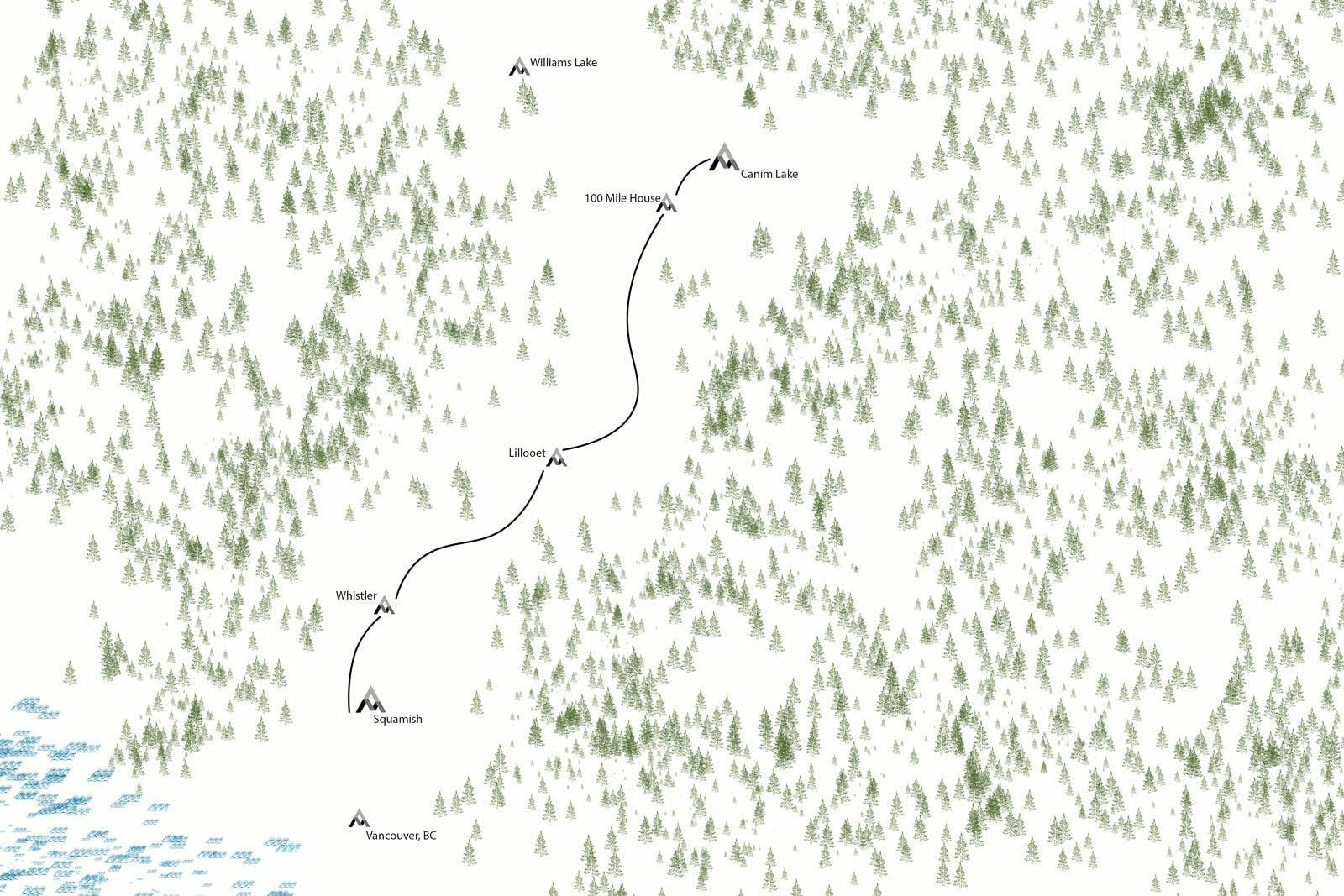
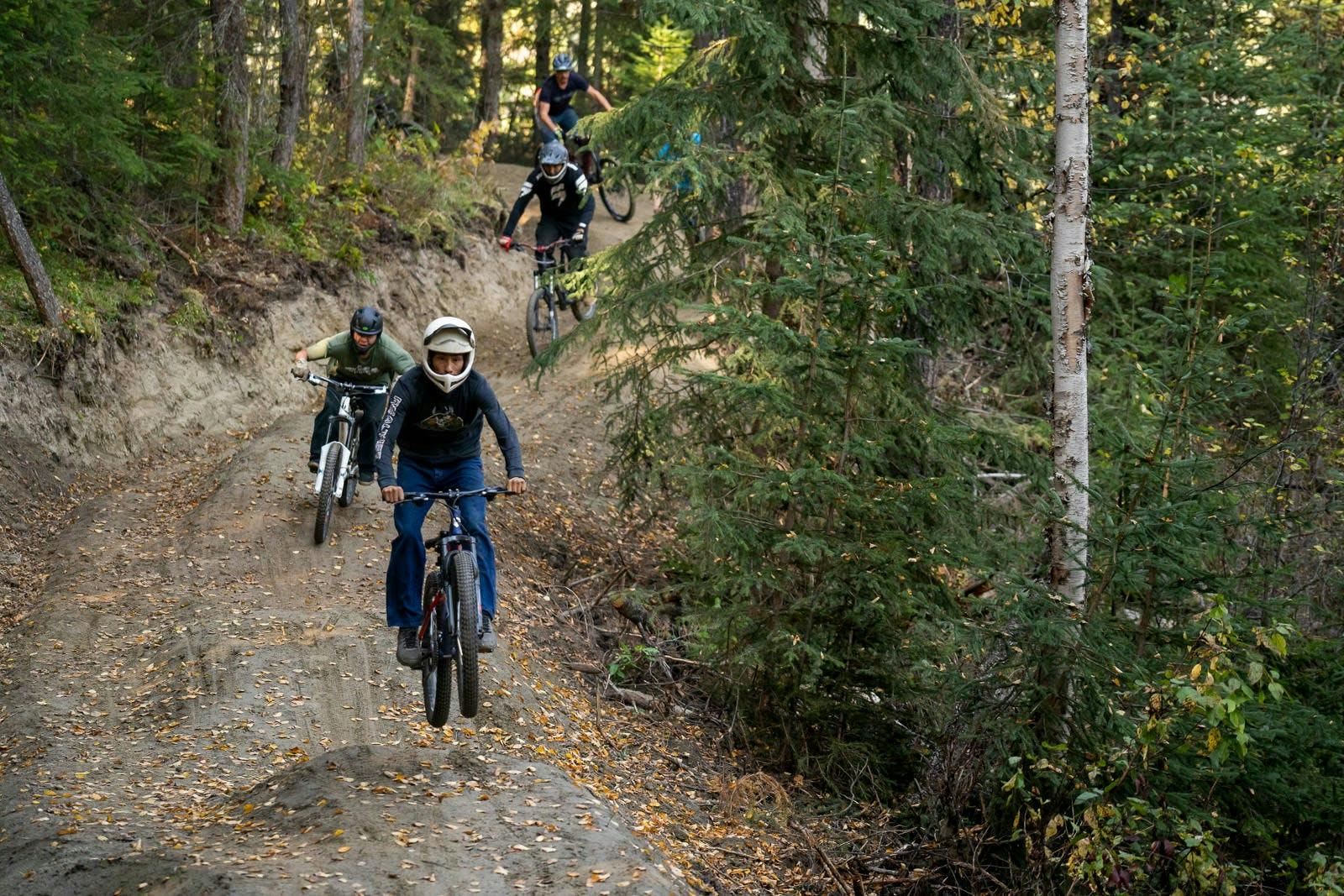
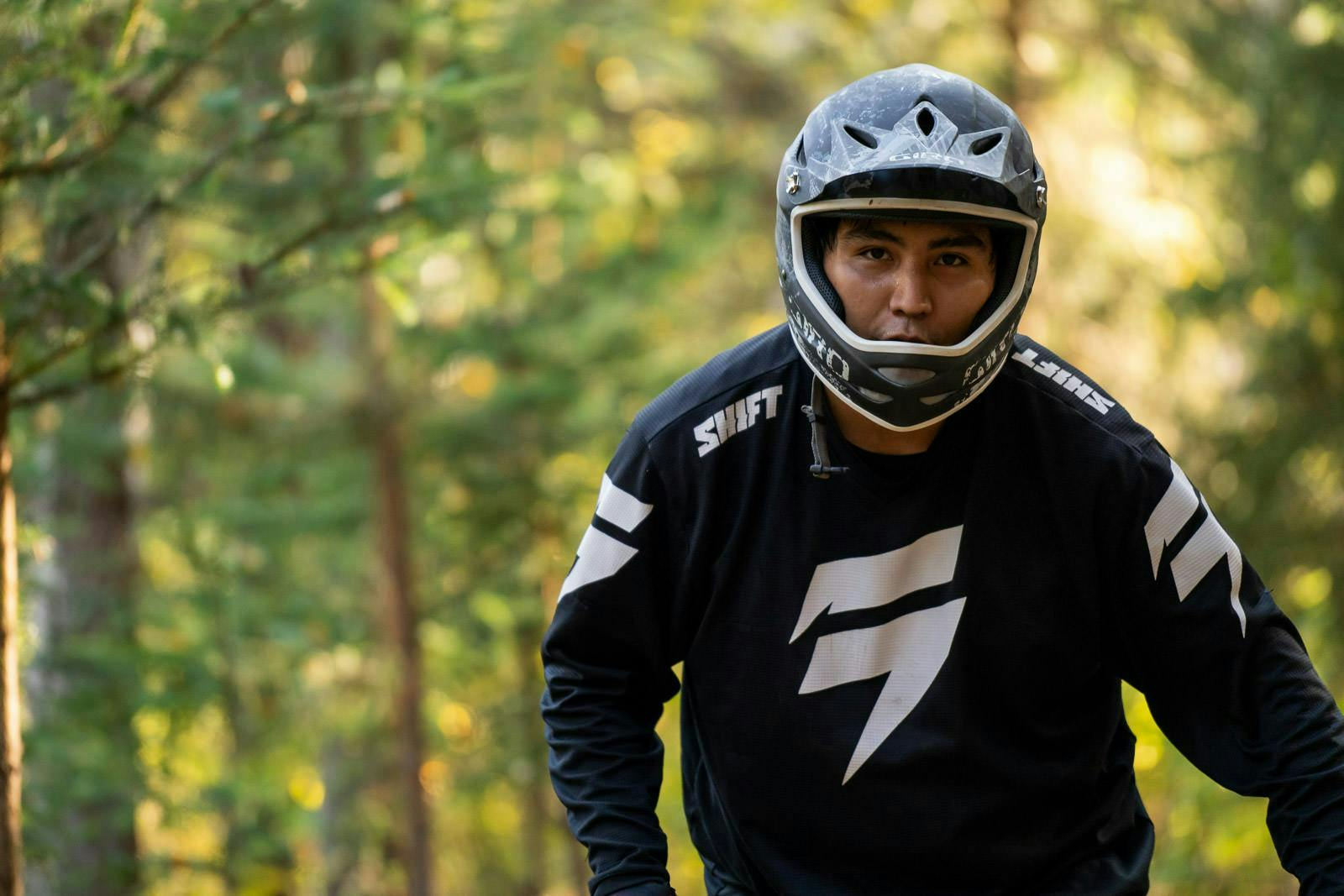
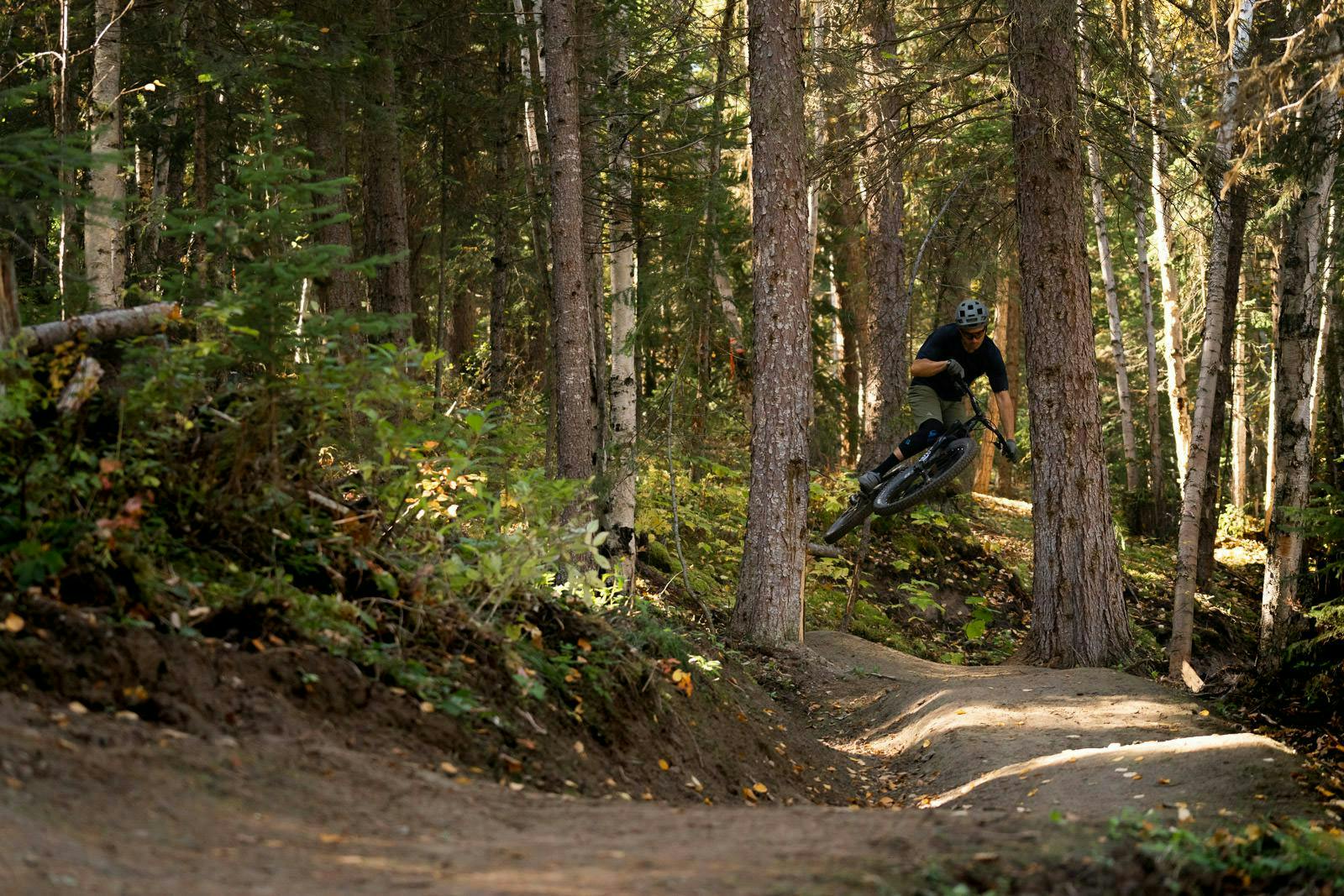
Following the moss-covered ground gradually being covered by golden leaves, we find a ribbon of dirt winding its way through the forest. Scattered along it are perfectly crafted jumps and berms and the source of the hooping and hollering. A group of riders, some still in their dirt-covered work pants, ripping down a fresh section of the trail they’ve just spent countless hours carving into the land. It’s a scene that would hardly be out of place in any of the major mountain biking destinations throughout BC. Yet far from Whistler or Kamloops, the trails this team has built over the summer would be a proud part of any of either of these networks. This is the result of dedicated builders from the Canim Lake First Nation and First Journey Trails.
This fall we were lucky to join this passionate and fun-loving crew on a ride as they showed us what the Friday ride club is all about, and reminded us about the pure joy of riding bikes.
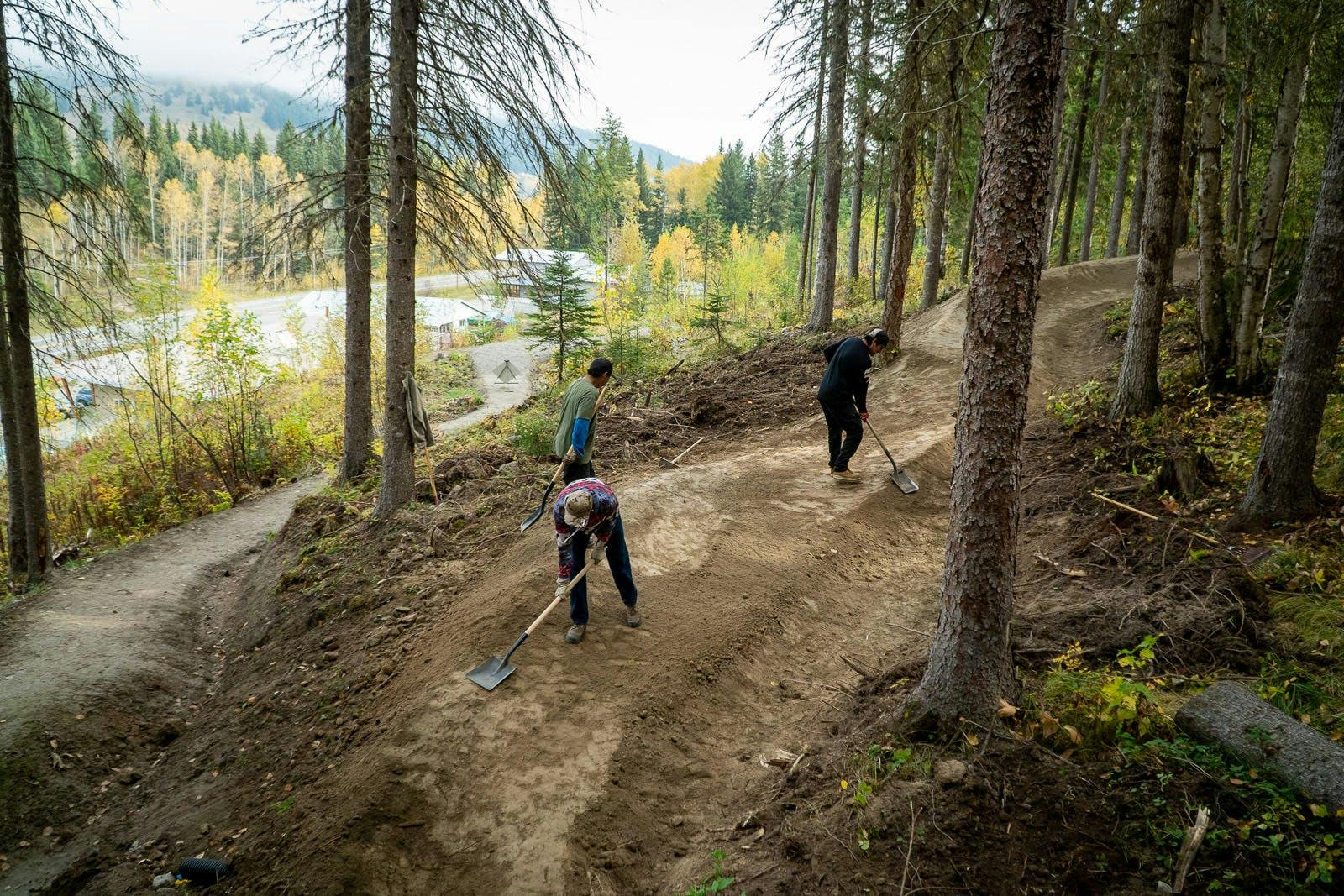
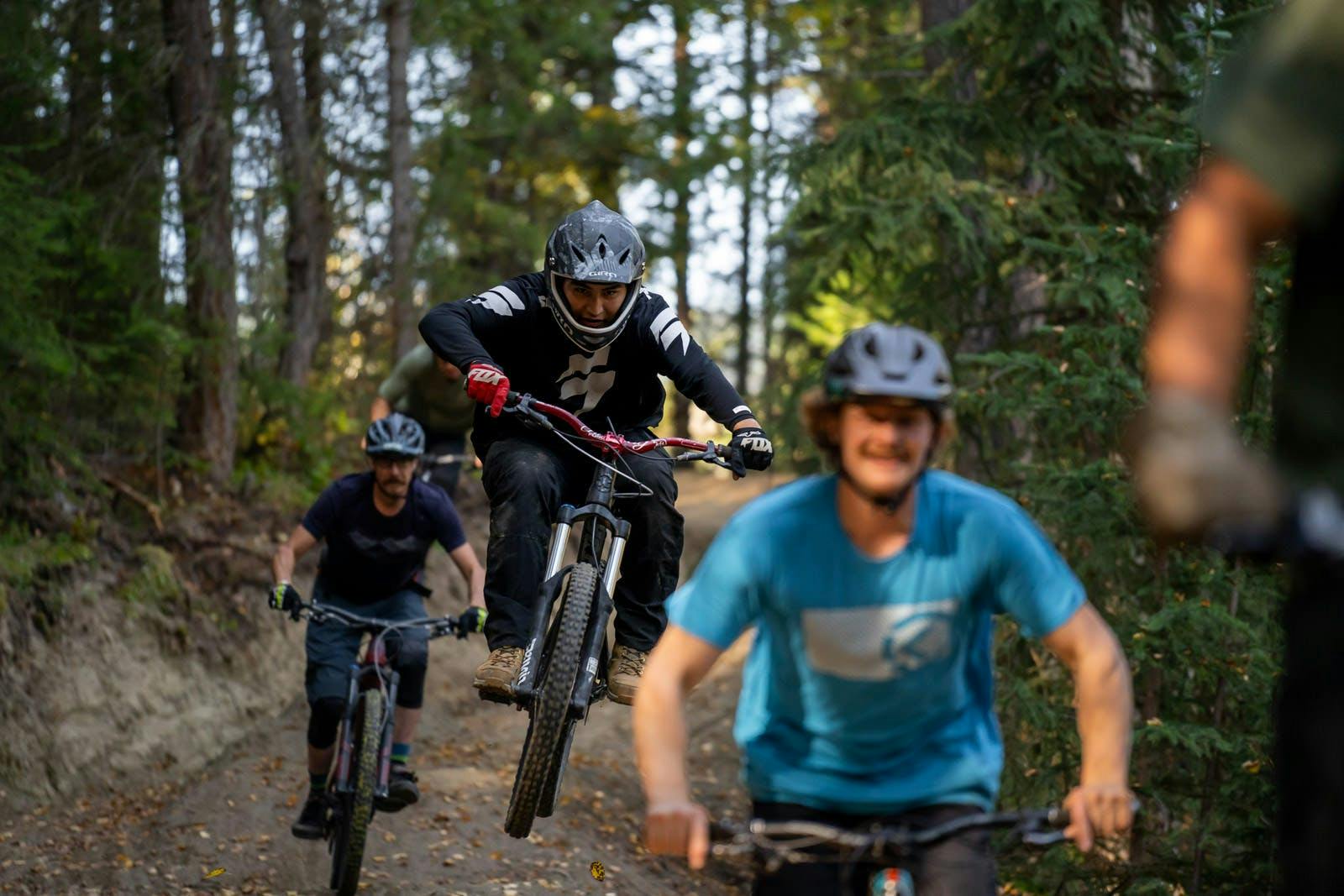
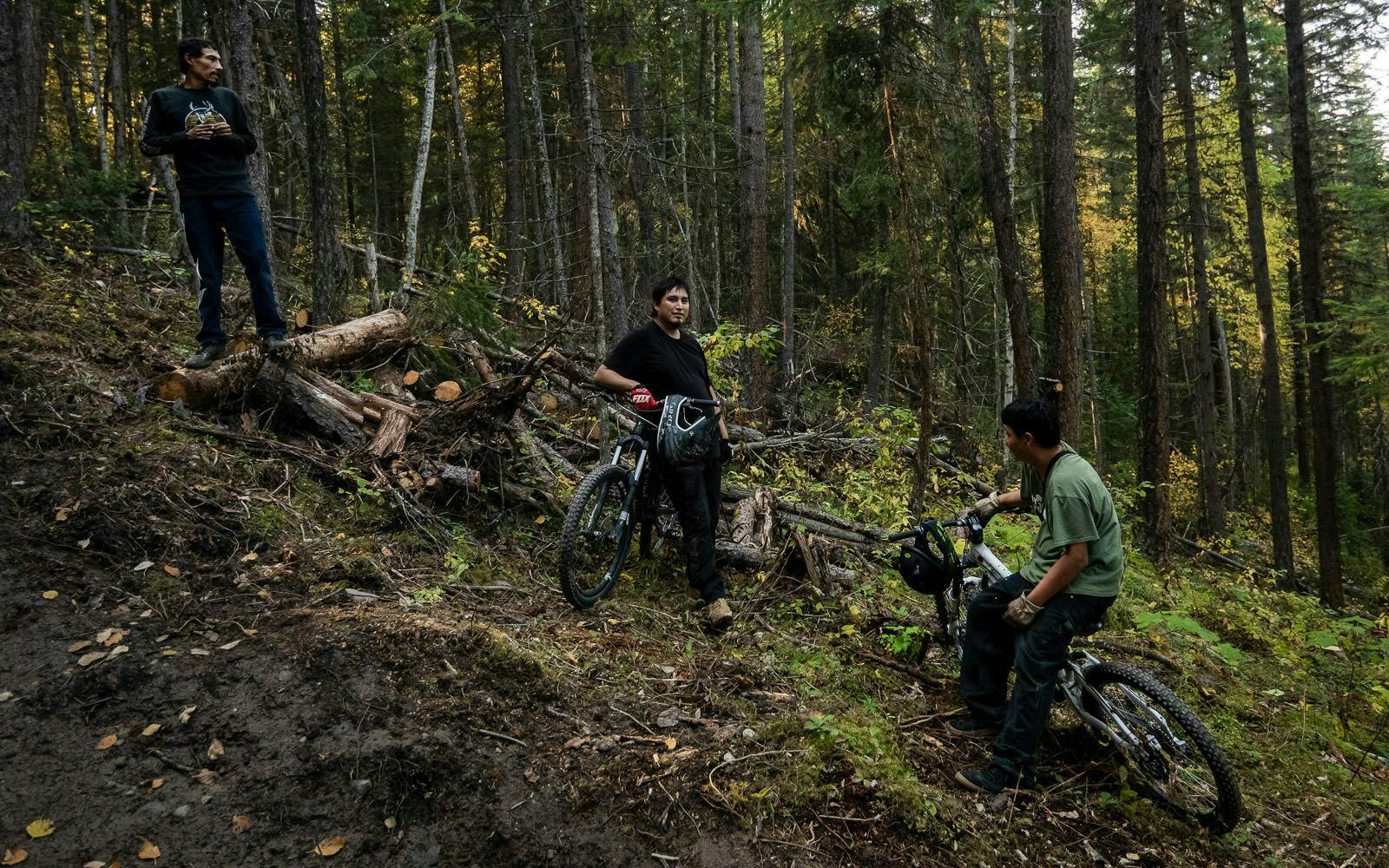
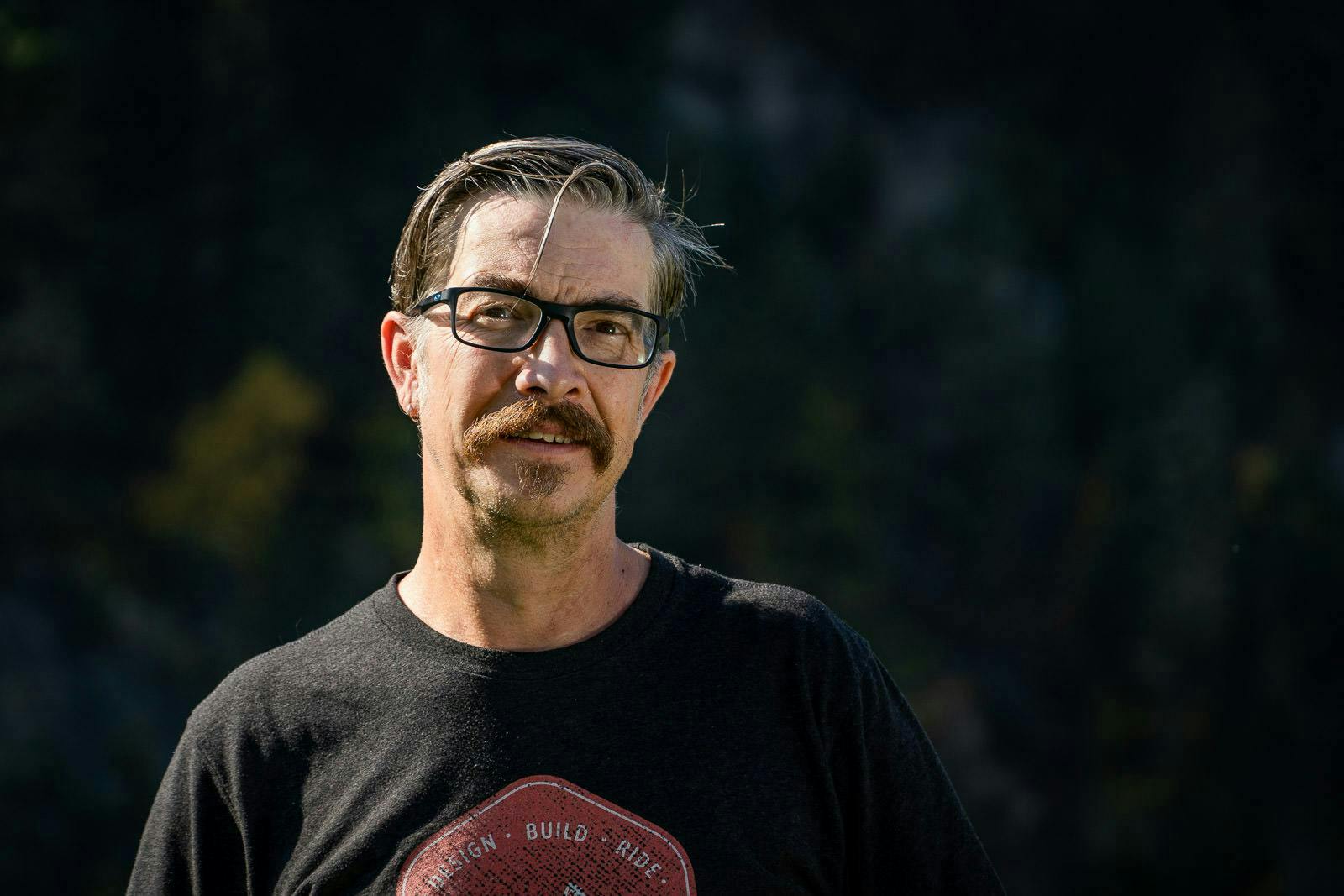
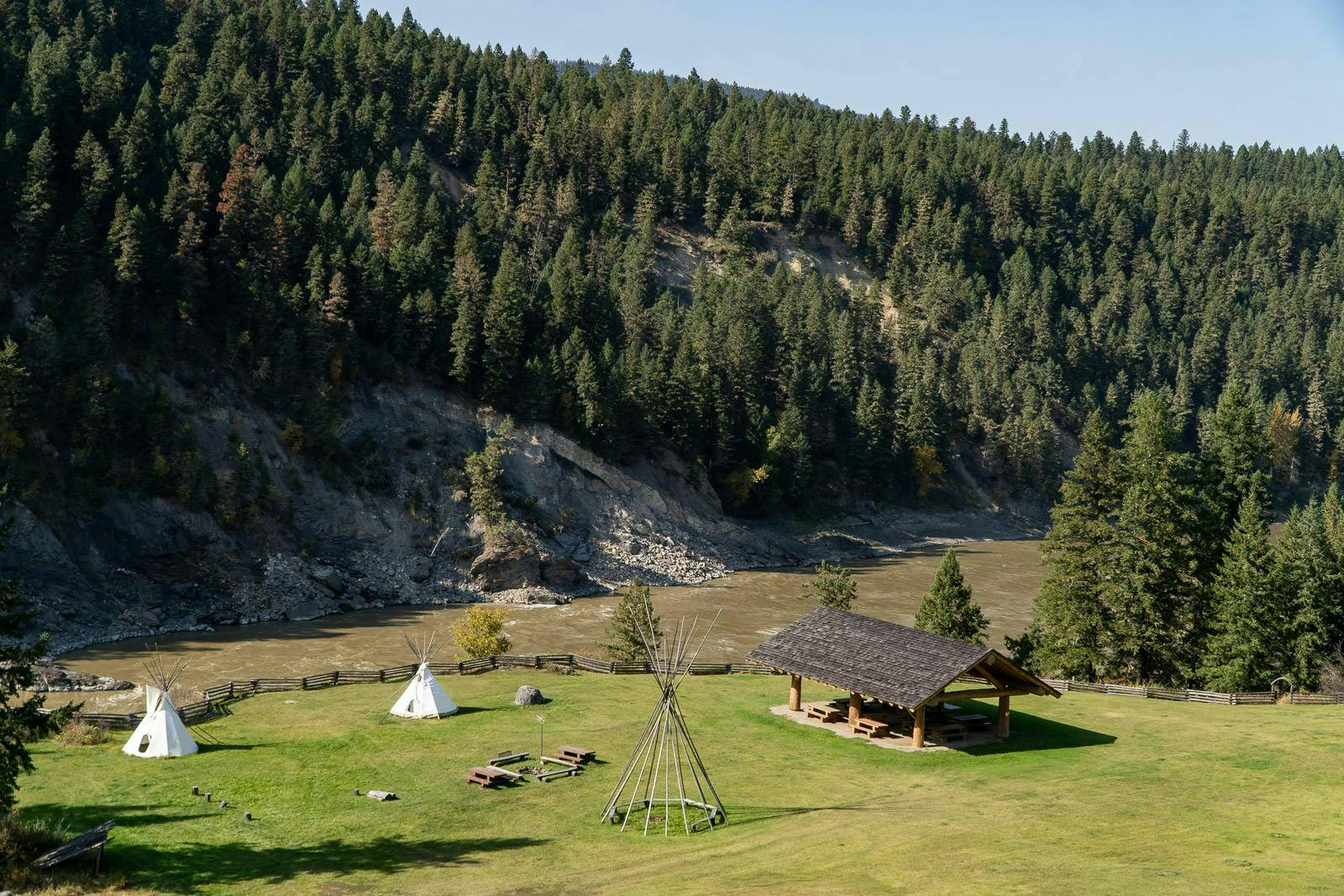
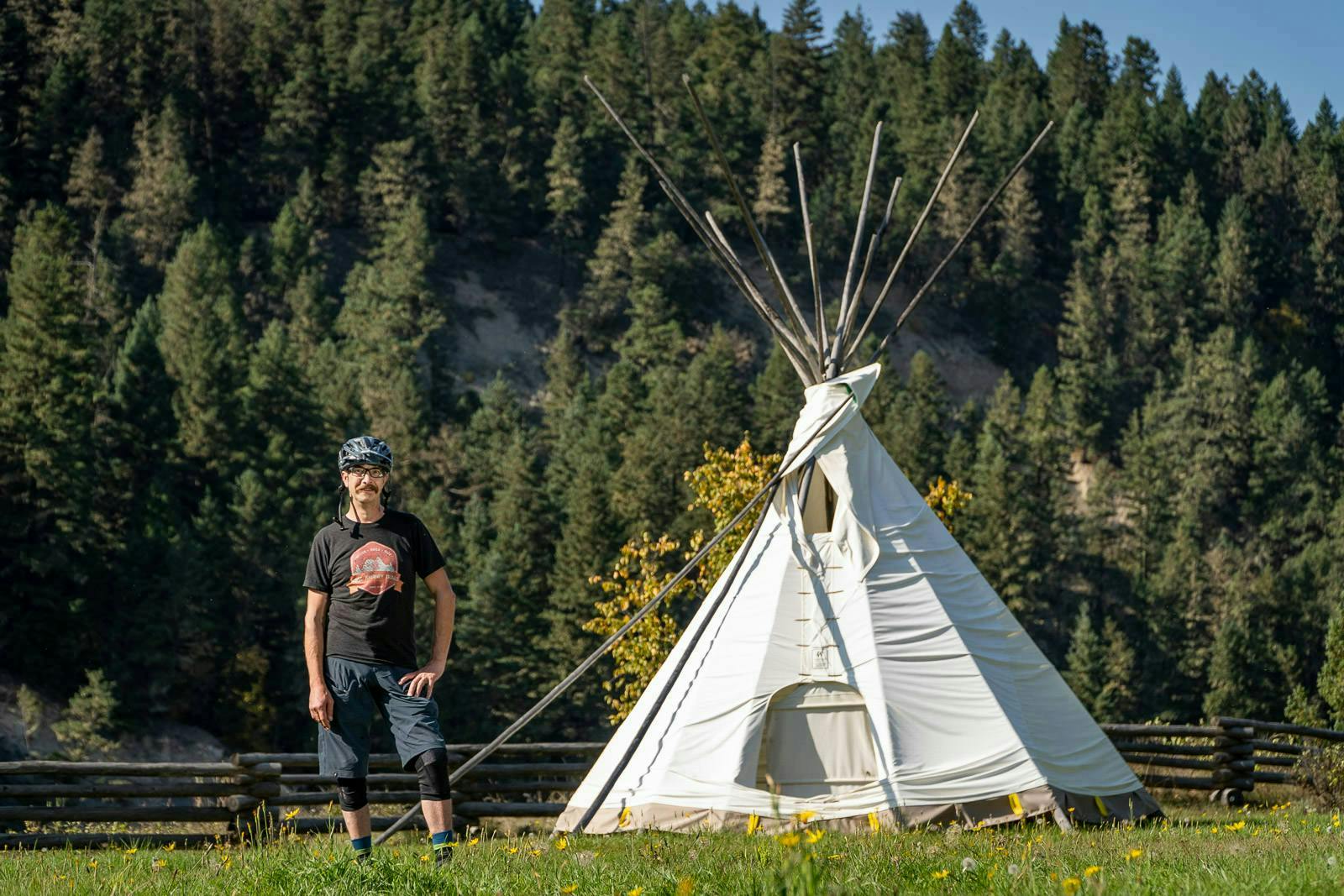
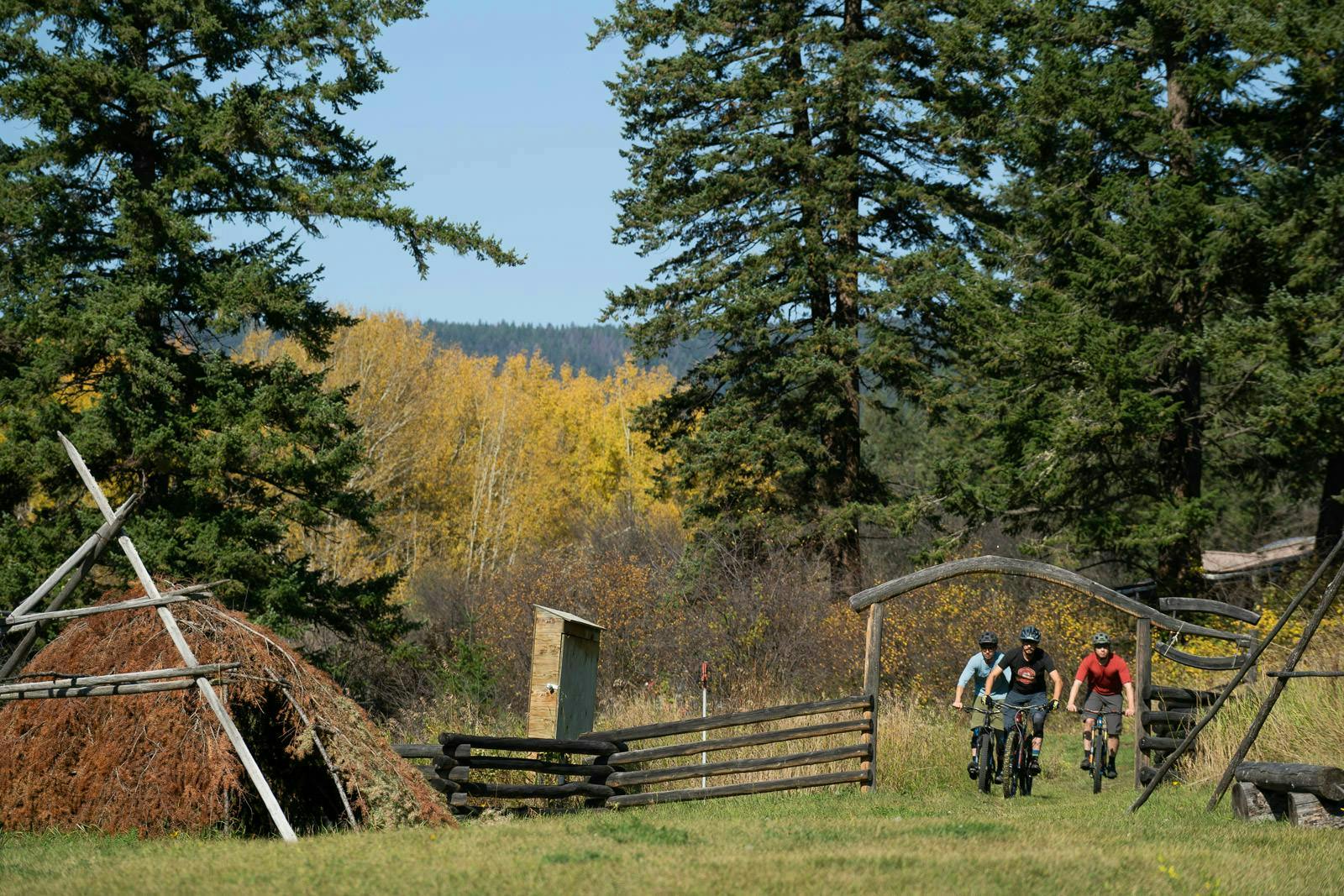
Thomas
Let’s begin with Thomas Schoen, founder of First Journey Trails and a pioneer in trail building and tourism solutions, often working closely with First Nations communities throughout BC. Thomas is also part of the Indigenous Youth Mountain Bike Program, focused on giving indigenous youth across Canada the opportunities and training necessary to safely build and ride trails.
Hailing from Germany, Thomas originally made the move to the Cariboo region following the wind for paragliding but also the tourism opportunities that would not only bring him a new life in Canada, but also lifelong friendships.
His first success in the area was in the early 90’s as he and his wife worked closely with the Soda Creek First Nation to build a tradition-themed heritage village and they began opening up the culture to tourists from around the world, offering traditional accommodation and demonstrations in cooking and weaving. The heritage village was a success and the Soda Creek band continue to run the village to this day, but more was to come when Thomas swung his leg over a mountain bike. Rattling around the mountains surrounding Williams Lake, he was hooked. This love for two wheels grew into a hobby, yes, but also so much more.
Mountain biking grew into a business, a job, a life. As with many of us, mountain biking became the portal into new communities and friends and this was no different for Thomas, but with that came opportunity to travel, working with different people around the province and bring exciting new prospects to rural communities. Thomas’ ability to see the big picture, on how mountain biking affects communities in different ways is maybe the secret of this success in turning passion into daily life. From understanding that a rural community with a pump track can benefit by getting the local kids outside and staying active, through to larger towns and cities where extensive trail networks give incentive to working professionals to make the move out of national hubs and bring these skills to a smaller community. The benefits of sustainable recreation can be seen rippling through communities in ways that aren’t obvious to most, but to Thomas, they’re the motivation.
And when these trails are done? Well someone has to test them, right?



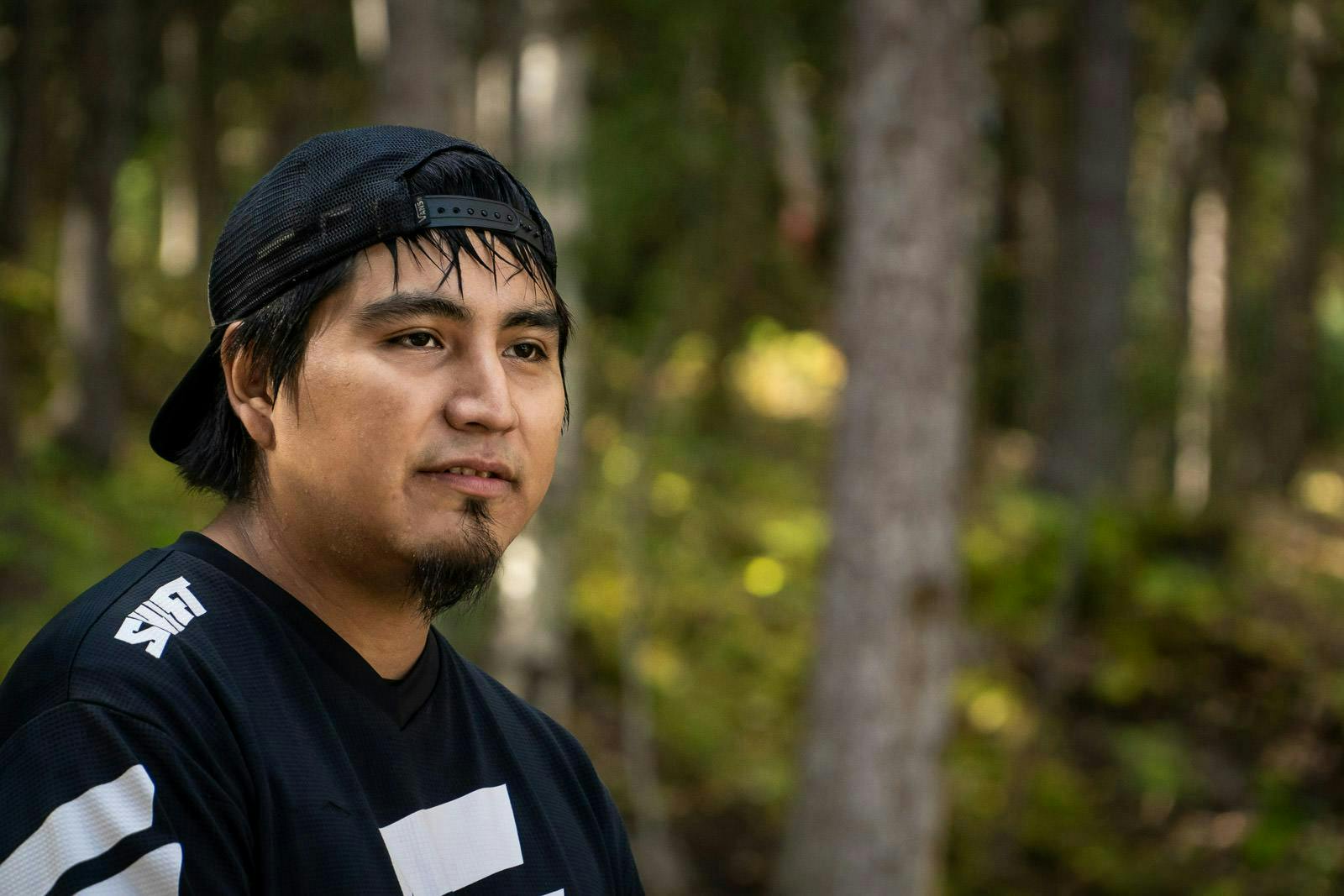
Kyle
“It’s fun and games out here in the woods trail building.”
Do you remember those days when you’re kicking mud off your shoes to grip the pedal, your heart is beating out your chest and you’re focused on the lip of the jump you can barely see through the maze of trees? Kyle still remembers. The older guys in the group would egg him on to test that new jump they just built into the hill. As he puts it, “being the test dummy for the bigger bros” seems to almost be a right of passage in the mountain bike world. I remember doing the same thing when I was young. Now, we’ve sometimes progressed to rock-paper-scissors to decide that.
A passionate trail builder, Kyle has been working with Thomas at First journey for many years and even had a hand in building one of the largest wooden trail structures in BC. He’s been riding since he was a kid and in similar ways to Thomas, mountain biking has progressed into being a part of life. Building trails in the woods all day has turned into a way to support his growing family while having fun riding his bike – a dream for many people. For Kyle, mountain biking isn’t just about the riding itself, it’s about the trail, the work that goes into each turn and jump, and being able to show others.

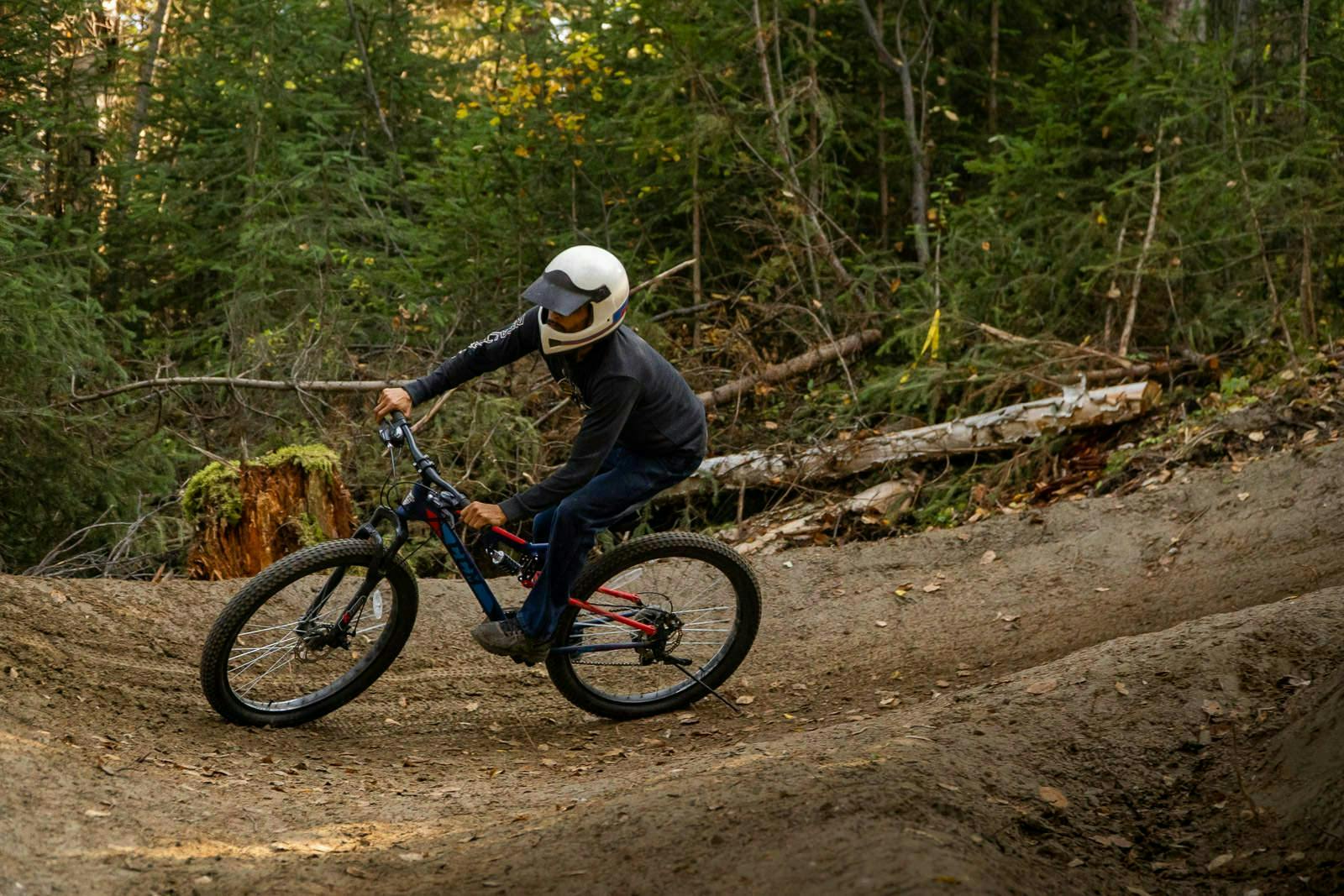


Dylan
“There’s something fun and enjoyable about seeing kids enjoying something you’ve just built.”
A man who never stops. Trail builder by day and farrier by night, Dylan is a recent member to the mountain biking family. Making the move from Saskatchewan in search of a less-saturated market for farrier work, Dylan also took up trail building as a second job this past summer. For the Friday afternoon rides, he began riding a hardtail that the Canim Lake First Nation provide for their members to get them out on the trails, and it certainly worked with Dylan. He’s now upgraded into mountain bike ownership with a full suspension Canadian Tire bike, but as he follows local professionals into a jump line, kickstand swinging, you wouldn’t know that he is in the first few months of riding bikes. Previously, Dylan competed in relay racing, a popular sport in indigenous culture, and a wild one at that. A dusty oval track, one rider, three horses and three laps. Each lap the rider comes round the last corner and prepares to jump. A team is made up of four members; the rider, and three horse handlers that must catch the speeding horses when the riders jump off mid-gallop. It’s exhilarating to say the least, and while Dylan isn’t racing horses currently, it makes sense why he’s so fearless on a bike. So, it would seem that for Dylan mountain biking is about the adrenaline, and there will certainly be an element of that, but there’s more to it.
“All in all it’s about being able to bring out the community.” Particularly for his two young step kids, who he often takes out on the trails evenings and weekends when he’s not out shoeing horses. Dylan has found friendship in the rest of the crew, his quick smile reveals how the time they spend outside building, and riding makes for a pretty enjoyable day in the office.
Once again, community involvement and fun is the focus. Each week at work is a good time for Dylan as he spends time outside with friends, riding bikes and having fun. In the evenings and weekend, when he’s not shoeing horses, he’s out on the trails with his young step-kids enjoying the forest and the trails.

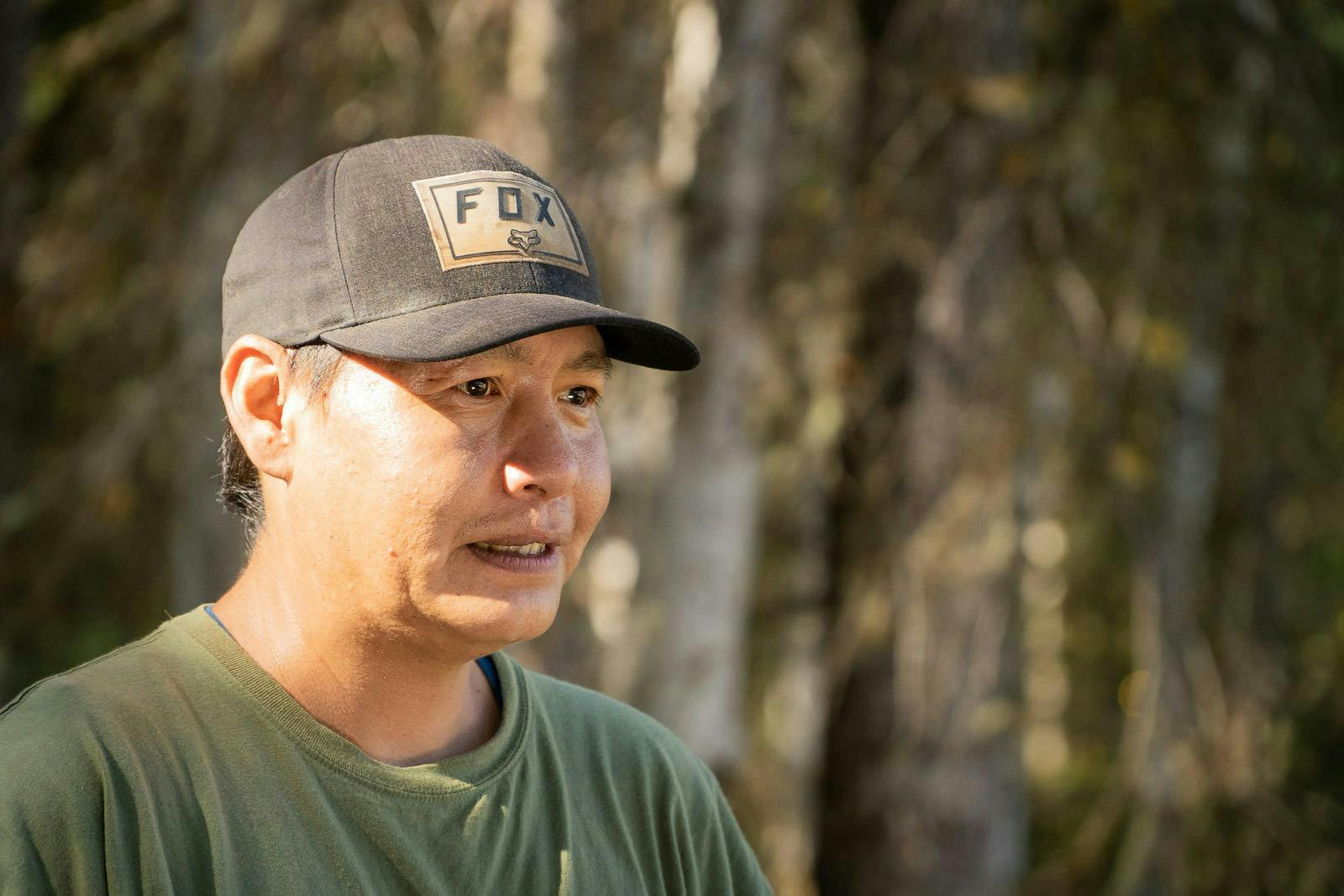
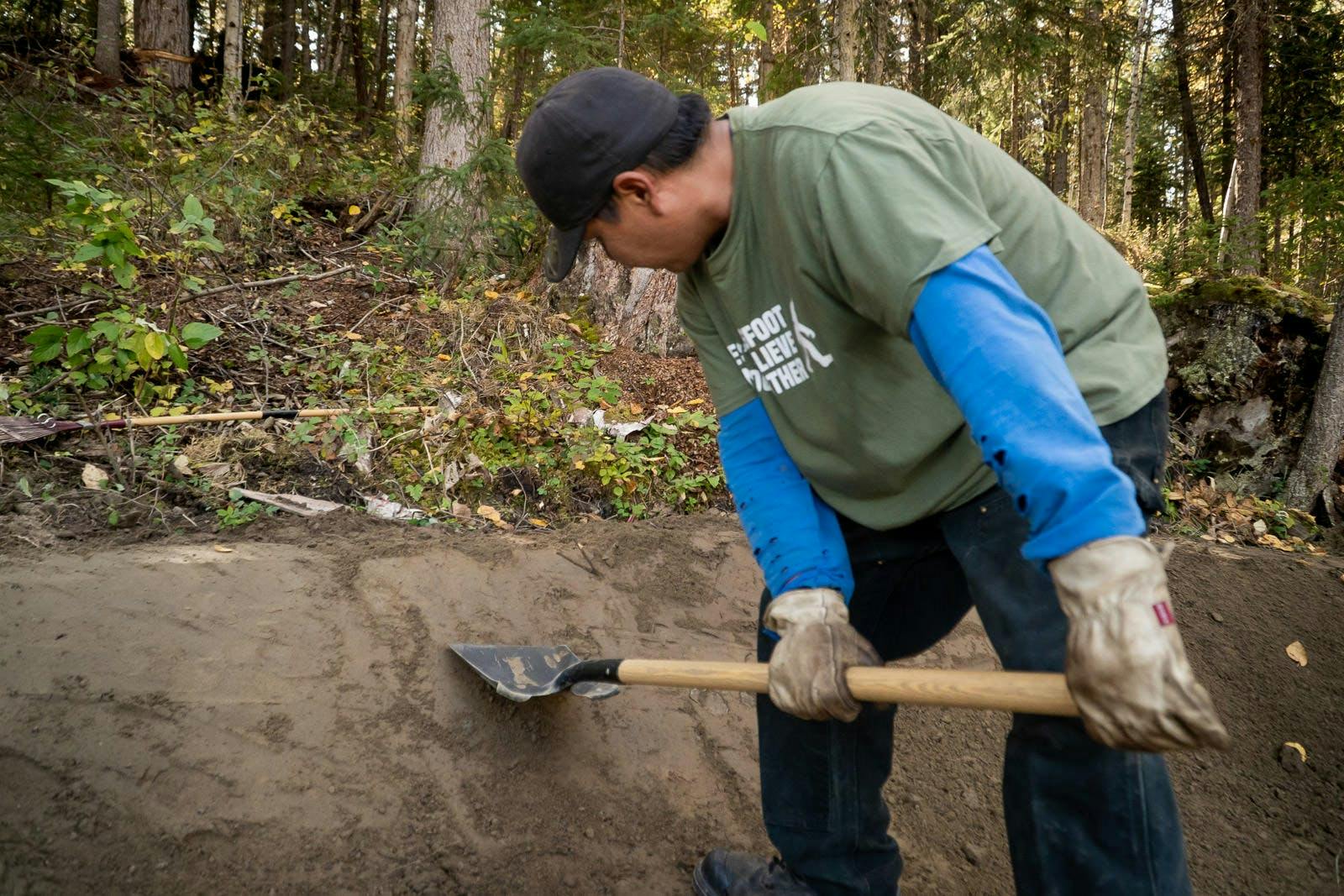
Derek
“I didn’t know this was work. I used to do this for fun all the time.”
Derek has been riding bikes since he was a kid. He’s responsible for building some crazy freeriding lines throughout the steep slopes of the valley and riding and building has always gone hand in hand. Hailing from Canim Lake, he knows the land well and can point out trail features he built twenty years prior. Now, he’s still ripping through the woods on his trusty Brodie, hitting every jump and occasionally pulling an accidental one-hander when his work glove slips. Through various circumstances and jobs, for Derek mountain biking has been a constant. A way of getting out into the hills with friends. A way of life.
When Derek walked into the band office and saw a job posting for trail building, he had to apply. His passion became his job, “and they call it work, this is a bush party”

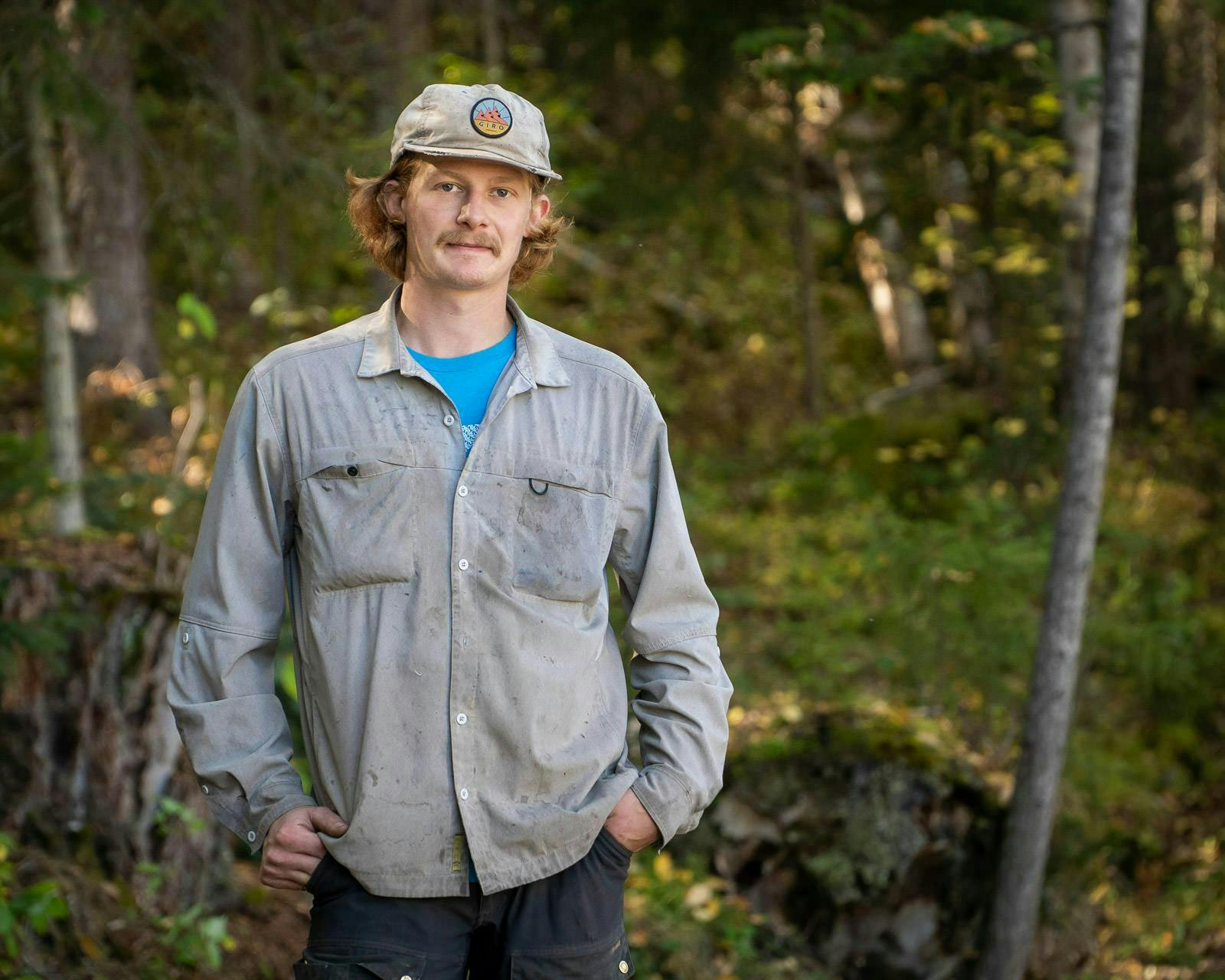
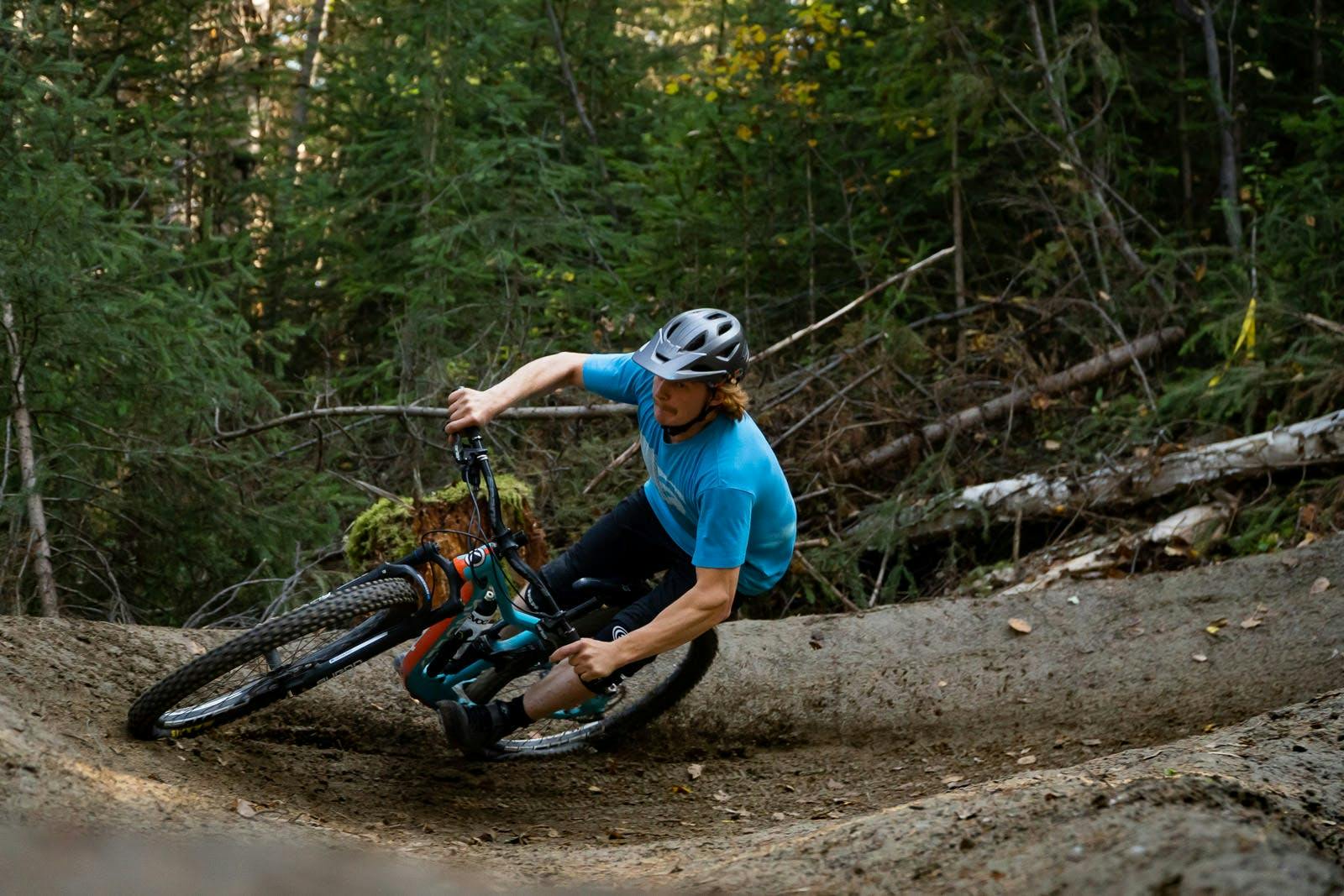
Jeremy
Trail building has taken Jeremy from the Lower Mainland to the Cariboo, the backyard to Red Bull Rampage. Following the route so many of us know and beginning building jumps in the backyard of his parents house, Jeremy made the move into bike shops and that took him around the province. This is a journey that many take through the underground mountain bike scene of BC, his is the path of the silent shredder, each job, each new hometown has had biking at its center. It’s what brought him to now living Williams lake, working as one of the lead hands on the Canim Lake project.
For Jeremy, he is most comfortable with either a shovel or a handlebar in his hands. A fact that is evident in his comfort on the bike. With one of the purest expressions of beautiful savergery displayed in how he rips a berm. But, he has also built a lot from his early experience digging jumps to have a well honed eye for that perfect line of a trail. This skill shows as he and the rest of the team trade playful insults between slaps of their shovel blades.
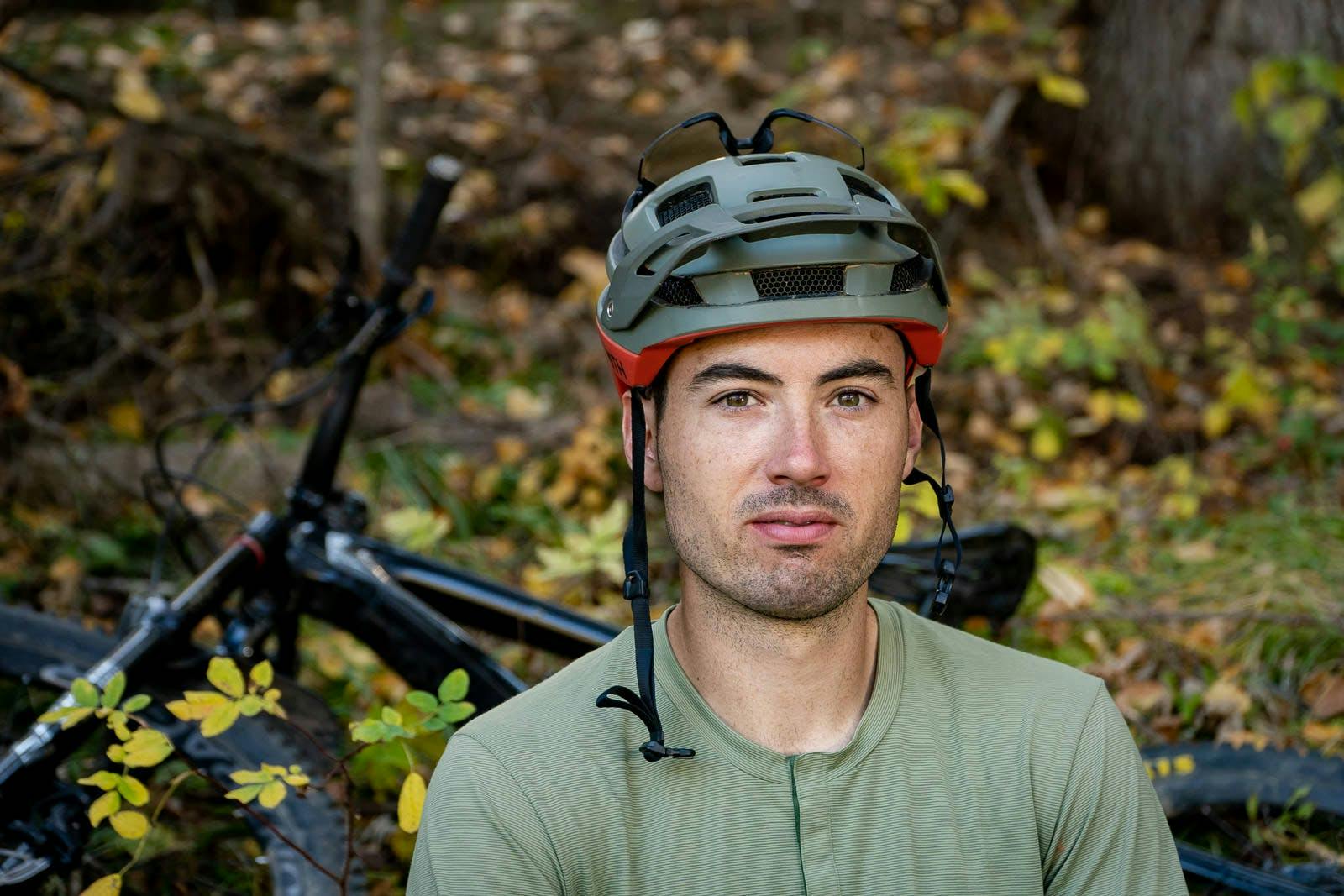
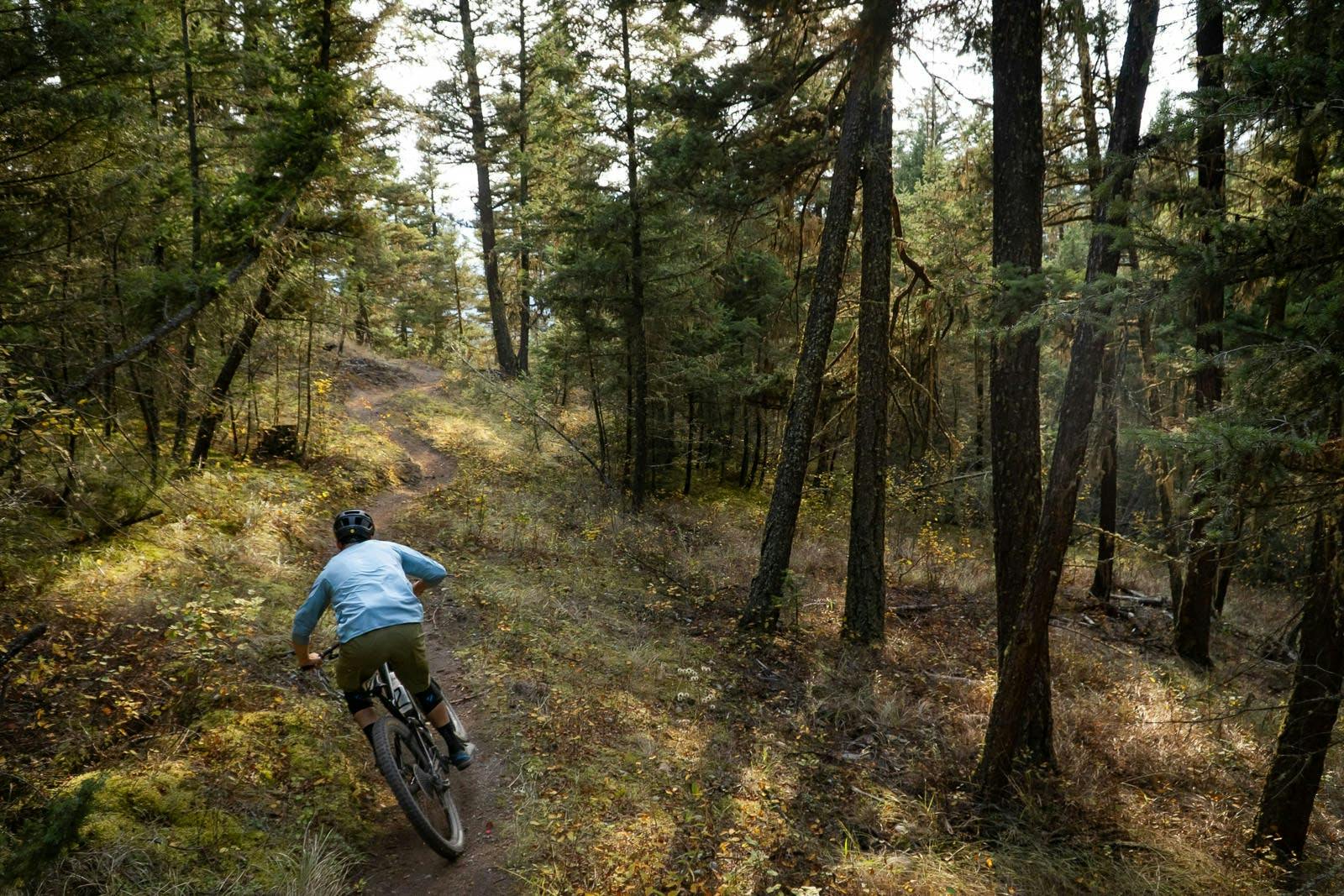


Vince
Growing up away from any mountains or forests in downtown Toronto, mountain biking wouldn’t seem like an obvious choice in terms of a sport to pursue for Vince. Being raised in a neighbourhood full of European and Caribbean immigrants soccer was undoubtedly the sport of choice. However an interest in skateboarding led him to be exposed to some BMX and Motocross films around the age of 12, an interest was sparked in Vince at that time that to this day hasn’t been extinguished, the wheels never stopped rolling so to speak.
The beginnings of mountain biking for Vince consisted of building and riding illegal dirt jumps in parks, these efforts were often short lived and extinguished by bylaw officers or concerned citizens. However, the comradery and the thrill delivered by that effort of building and riding something with your pals was unparalleled and kept everyone coming back for more. Soon enough, an interest in downhill bike racing developed, which took him out of his urban setting to discover new trails and riding destinations. This passion coupled with a desire to live a healthier more active lifestyle was the catalyst that brought Vince to BC.
“The enjoyment and enthusiasm this crew had for mountain biking and getting out for a ride together is something I haven’t seen or felt for a long time. It was really genuine and organic, they really love getting out for a ride together. I recognized that enthusiasm and joy from my early days in the sport,and it was so refreshing to see. No camera phones or Instagram, just some good jokes, good corners and few funny crashes. Those guys were having such a good time. Don’t get me wrong I still love riding, but I’m genuinely unsure of the last time I felt the way they do about it. With a few years in the game, a few injuries to my name, I feel like my relationship with the sport is a bit more complicated”
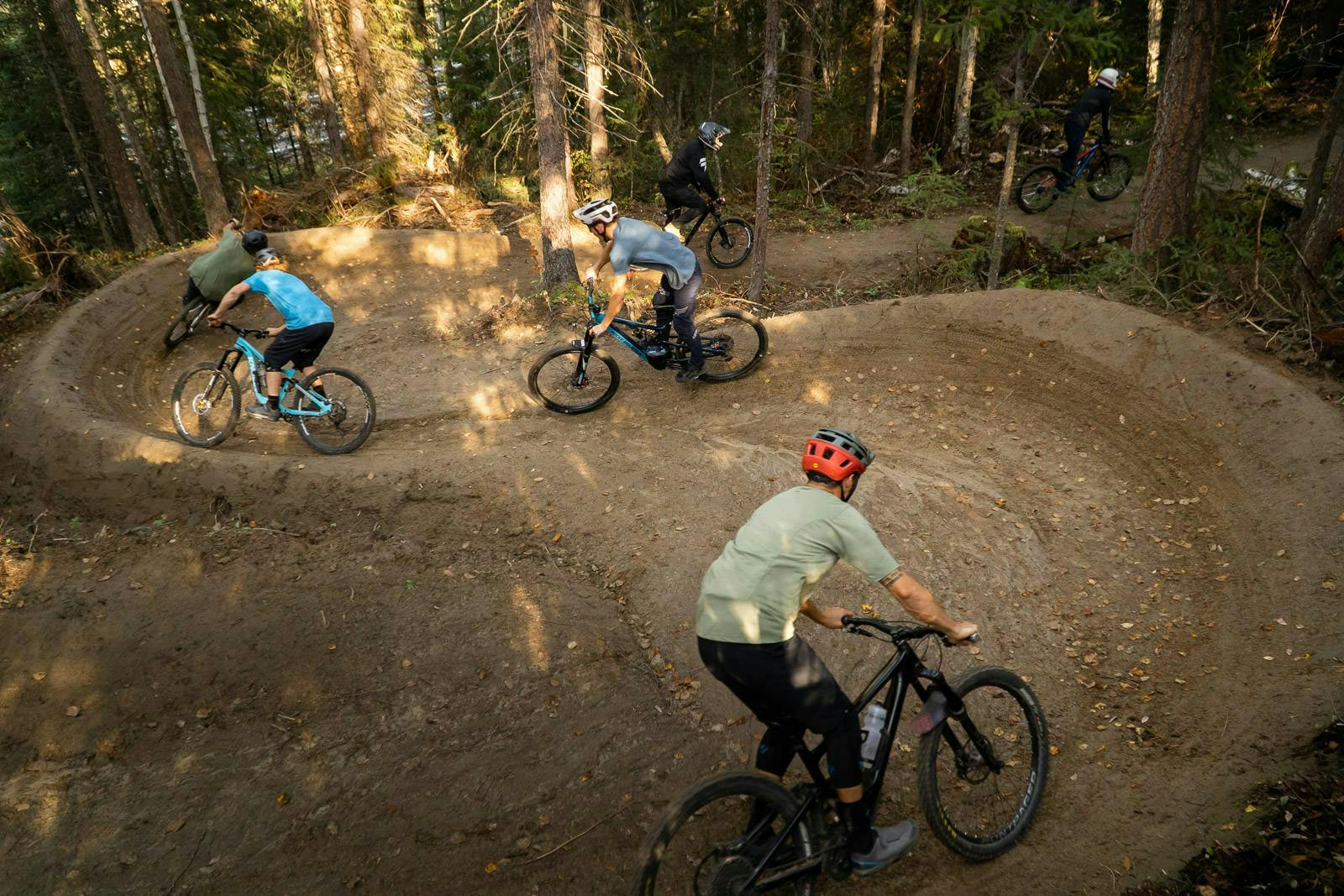
This shared joy for riding bikes provides the perfect common ground for meeting new people. It’s easy to make new friends when you all share a common interest and passion, but deep down, what are your reasons for riding bikes? People often get wrapped up in having the correct wheel size or the optimum head angle, and we often lose sight of why we even started to ride in the first place. We should all try to remember what it first felt like to stand on the pedals, push into a trail for the first time, and just go with what shows up.
We left the Canim Lake reserve enthused and inspired. The commitment to building the community and getting the youth out on the trails was an amazing sight to see. Mountain biking has been a catalyst for development in various rural communities across the country and globe, and each destination sees it differently. For some, it brings in tourism dollars and boosts the local economy, but the locals may not be able to reap the benefits and that can sometimes lead to a natural expiration date. The guys at Canim Lake see it differently. They build because they’re passionate about the land and they’re motivated to provide activities, responsibility, and ownership to the next generation. This really shows in their work. The trails are there for everybody to ride and are already on Trailforks (search “Canim Lake”), but at the heart of it is the community, building something for the next generation and connecting with nature.
Through a long and difficult history that sadly still continues, all these communities are paving the way for a better future for the next generations. Whatever the motivations and outcomes of these trail projects, the ownership rightly belongs, and always will, to the communities and people that bring them to life. It’s a long road, but thanks to these builders around the country, those roads will get built quickly and maybe even have some jumps along the way. As Thomas often says, “Trails to reconciliation.”
7mesh is a supporter of the Indigenous Youth Mountain Bike Program.
